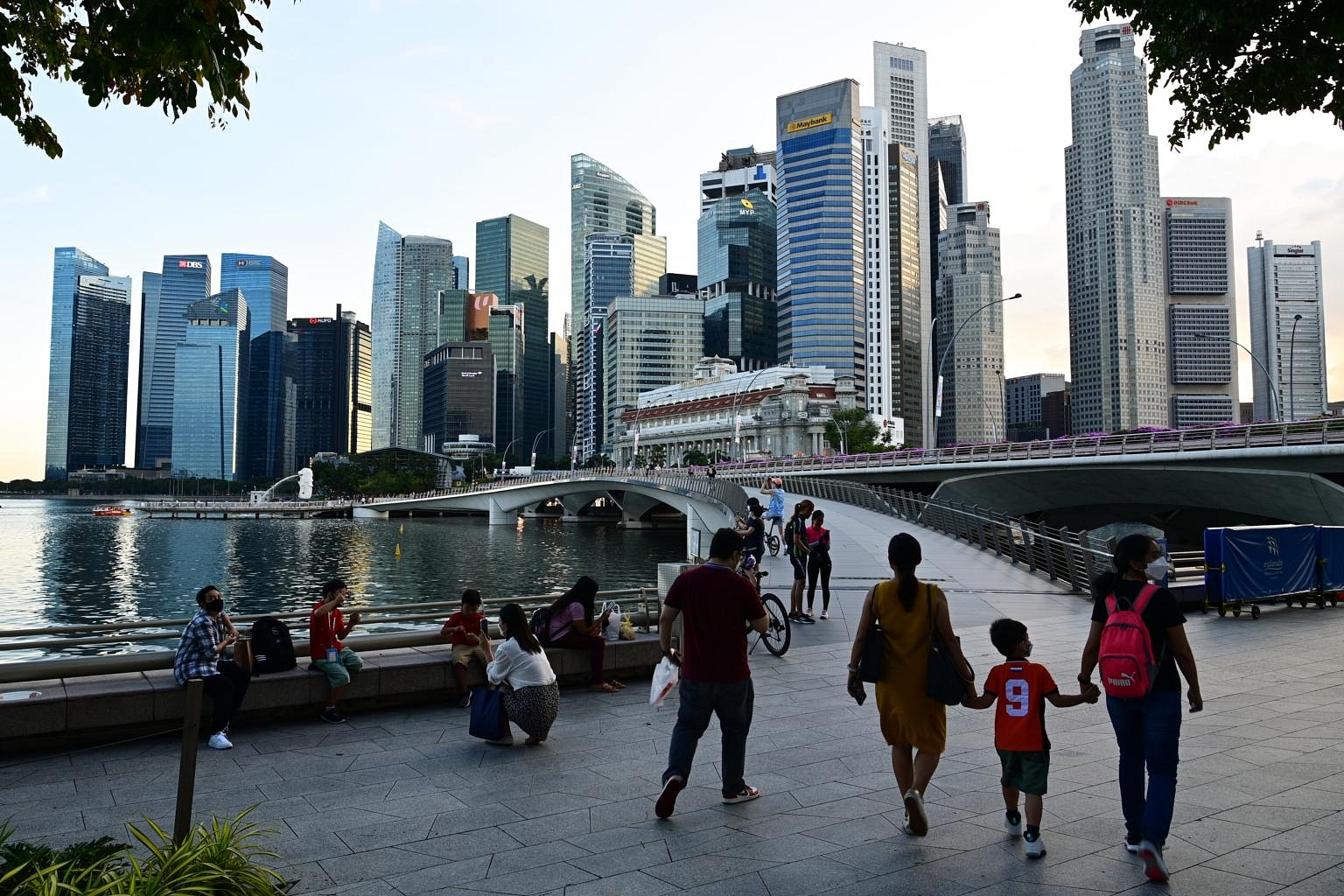SINGAPORE - The Straits Times on Tuesday (March 15) hosted a panel discussion on Covid-19 measures and when they can be eased further, moderated by Straits Times senior health correspondent Salma Khalik.
Here are some snippets from the talk.
On additional booster shots
The Singapore population currently has some degree of resistance against Covid-19, thanks to high levels of both infections and the recent administration of booster vaccinations, but this will not remain indefinitely, said infectious diseases expert Teo Yik Ying on Tuesday (March 15).
Professor Teo, who is dean of the Saw Swee Hock School of Public Health at the National University of Singapore, said people may need multiple boosters, perhaps taken annually, or the country may see another outbreak or "recurrent waves" of Covid-19 in the future.
National Centre for Infectious Diseases executive director Leo Yee Sin said the authorities are looking closely at the local data to decide if additional booster shots are needed.
"I don't deny that while looking at all these data, the Ministry of Health may one day decide that it is time for us to provide another dose, particularly to the highly vulnerable ones," she said, adding that many countries now offer additional boosters to those over the age of 80.
On flu and other diseases
Even though Covid-19 has killed over 1,100 people in Singapore, some deaths from other causes might have been prevented due to the reduction in social interactions.
Professor Leo noted that Singapore was among a handful of countries and regions that saw a negative excess mortality rate in 2020 and last year, according to a study published in The Lancet medical journal.
This means fewer people died overall during the pandemic compared with the years before.
"Influenza, basically, is rock bottom in Singapore and in many parts of the world," she said, adding that Singapore will need to monitor the flu and other acute respiratory diseases as it opens up.
Professor Dale Fisher, a senior infectious diseases consultant at the National University Hospital, agreed.
He said that while diseases such as hand, foot and mouth disease, gastrointestinal illnesses, and even sexually transmitted infections would have declined because of the lower level of social interaction, other negative factors such as childhood weight gain and mental health issues are on the rise.
Prof Teo said the impact of the measures themselves may prove to be just as significant as Covid-19.
He added: "We believe that the overall benefit to individuals, to society, will actually outweigh some of the impact from opening."
On herd immunity
Prof Teo noted that getting vaccinated or being exposed to the coronavirus provides immunological protection so that subsequent exposures will not be as severe.
He also noted that the currently dominant Omicron variant is less severe than the Delta variant and questioned if it might be the right time to allow people to be exposed to the virus naturally and build up their immunity.
"Should we now still have all these measures in place with the intention to minimise infections? I don't actually think that we need to do that any more," Prof Teo said.
Instead, he said individuals should exercise personal responsibility and do a self-test if they are meeting an elderly person, for example.

In the years to come, Covid-19 may hit in "returning waves", but each wave may cause fewer and fewer severe illnesses as people's bodies get used to it, he added.
Prof Leo, however, cautioned against taking Omicron too lightly. She noted that Omicron is effective at evading the immune system, even if one was previously infected by Delta or another strain.
"So in other words, you're still at risk, she said. "Now, we are in the Omicron wave. Do we know what is next? We don't."
On the Deltacron variant
One recent development is the so-called "Deltacron" variant, which combines characteristics of the Delta and Omicron variants.
This is a real recombinant or hybrid variant, but little is currently known about it, said Prof Leo.
"Although the number is very small at this point in time, it may fizzle out or it may become a problem," she said.
"We just don't know. We are still very uncertain of the whole situation."
Prof Leo added that it is possible that yet another variant could emerge, even as scientists are busy studying the Deltacron variant, which was first detected in Covid-19 samples collected from France in January.
According to Gisaid, an online open-access repository for genomic data on viruses, 35 cases have been detected in France and eight in Denmark.
Germany, Belgium and the Netherlands each have one case, while genetic sequencing company Helix has identified two cases in the United States.


